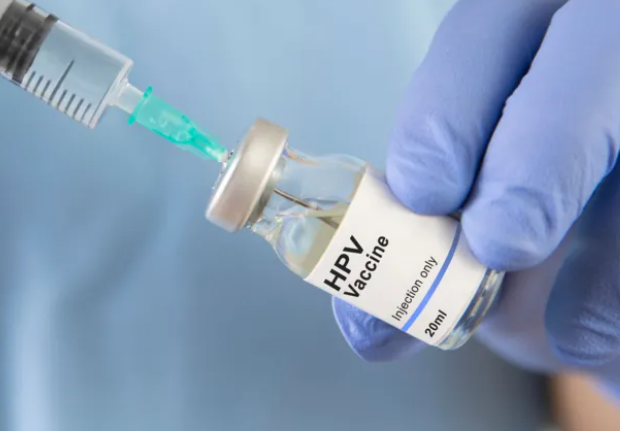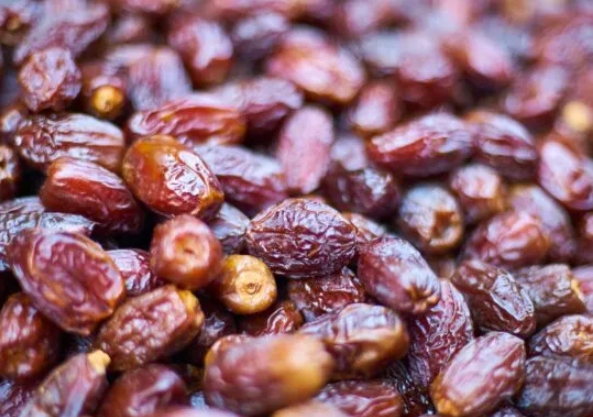News
Experts Reveal Why Manhood Cancer Is On The Rise

In 2018, Brazilian pensioner João sought medical help after he found a wart on his penis.
“I started visiting medical clinics to find out what it was, but all the doctors told me it was due to excess skin and prescribed medication,” the 63-year-old recalls.
Despite the medication, the wart continued to grow. It started to take a toll on his marriage and João and his wife’s sex life declined. “We were like siblings,” he admits. He was determined to find out what was going on.
For five years João, not his real name, went back and forth to specialists who prescribed more medication and ordered new biopsies. “Nothing solved it,” he says.
Then, in 2023, he was given a diagnosis – João had penile cancer.
“For my family, it was a very unpleasant surprise, even more so because I had to have part of the penis amputated. I feel like I was decapitated,” he says.
“It’s a type of cancer that you can’t talk about with people because it could turn into a joke.”
Penile cancer is rare, but incidences and mortality rates are on the rise around the world.
According to the latest studies, Brazil, where João is from, has one of the highest incidence rates of 2.1 per 100,000 men.
*Terrified of surgery’*
Between 2012 and 2022, there were 21,000 reported cases, according to Brazil’s Ministry of Health. This resulted in more than 4,000 deaths and, over the past decade, there have been more than 6,500 amputations – averaging one every two days.
Maranhão, the poorest state in Brazil, was found to have the highest incidence rate globally at 6.1 per 100,000 men.
Symptoms of penile cancer often start with a sore on the penis that does not heal and a strong-smelling discharge. Some people get bleeding and colour changes of the penis, too.
When detected early, there is a high chance of recovery through treatments such as the surgical removal of the lesion, radiotherapy and chemotherapy.
But if left untreated, partial or total amputation of the penis, and possibly other nearby genital organs such as the testicles, may become necessary.
João underwent a partial amputation in January and says it was a difficult time.
“It’s something you never imagine will happen to you, and when it does, you can’t just go around telling people,” he says.
“I was terrified of surgery, but there was no other alternative. The feeling in the first weeks after the surgery was one of sadness, I can’t deny it. Not having part of your penis is horrible.”
Some patients undergo a total amputation which is life-changing.
Thiago Camelo Mourão from the Department of Urology at AC Camargo Cancer Center in São Paulo says: “In the case of partial amputation, urine continues to exit through the penis.
“However, in total amputation, the urethral orifice can be relocated to the perineum, between the scrotum and the anus, requiring the patient to urinate while sitting on the toilet.”
Mauricio Dener Cordeiro of the Brazilian Society of Urology says personal hygiene is important
Mauricio Dener Cordeiro of the Brazilian Society of Urology says the persistent infection of human papillomavirus (HPV), a name given to a common group of viruses, is “one of the main risk factors”. HPV can be transmitted during sex and in some cases, it can lead to cancers including in the mouth and penis.
He says: “Mass vaccination against HPV is essential due to its high effectiveness in preventing related lesions,” but he adds that vaccination rates in Brazil are below the level needed to be truly effective.
“In Brazil, despite the availability of the vaccine, the HPV vaccination rate remains low for girls – reaching only 57% – and for boys, it doesn’t exceed 40%,” he says. “The ideal coverage to prevent the disease is 90%.”
He believes misinformation about the vaccine, unfounded doubts about its effectiveness and a lack of vaccination campaigns have contributed to the low take-up.
According to the UK’s National Health Service (NHS) website, smoking can increase the risk of getting penile cancer, too. It also says you might be more likely to get penile cancer if you “have problems pulling back your foreskin (the skin covering your penis) to keep your penis clean (a condition called phimosis)”.
“When a man does not expose the glans and fails to clean the foreskin properly, it produces a secretion that accumulates,” Dr Cordeiro says. “This creates a highly favourable environment for bacterial infections.
“If this occurs repeatedly, it becomes a risk factor for the appearance of the tumour.”
Getty Images
Mass vaccination against HPV is essential to prevent penile cancer, experts say
But Brazil is not the only place where penile cancer is on the rise. According to the latest research, the number of cases is increasing around the world.
In 2022, the journal JMIR Public Health and Surveillance published the results of a large-scale analysis involving the latest data from 43 countries.
It found the highest incidence of penile cancer between 2008 and 2012 was in Uganda (2.2 per 100,000), followed by Brazil (2.1 per 100,000) and Thailand (1.4 per 100,000). The lowest was in Kuwait (0.1 per 100,000).
“Although developing countries still bear the higher incidence and mortality of penile cancer, the incidence is on the rise in most European countries,” the team of researchers led by Leiwen Fu and Tian Tian from Sun Yat-Sen University in China found.
They reported that England had seen an increase in penile cancer, rising from 1.1 to 1.3 per 100,000 between 1979 and 2009 and in Germany cases increased by 50% from 1.2 to 1.8 per 100,000 between 1961 and 2012.
These figures are only set to get higher, according to the Global Cancer Registries prediction tool. It estimates that by 2050, the global incidence of penile cancer will rise by more than 77%.
This change can largely be attributed to the ageing population, according to the experts, who say the highest incidence occurred in men in their 60s.
Dr Cordeiro says: “Penile cancer is a rare disease but also highly preventable”.
He advised that using condoms during sex and undergoing surgery to remove the foreskin in cases of phimosis could help
reduce the risk of penile cancer.
Neil Barber, Clinical Lead for Urology at Frimley Health NHS Foundation Trust, adds: “Penile cancer is almost unheard of in the circumcised population. Poor hygiene and infections beneath the foreskin, as well as conditions like phimosis that make it difficult to retract the foreskin and maintain good hygiene, are risk factors. This is linked to higher overall infection risks”.
“Established risk factors also include unprotected sex, specifically not using condoms, with poor hygiene further increasing risks through this route.”
João is currently waiting for his latest test results, which he will receive later this year. “I’m confident that these exams will show that I’ll be cured,” he says.
“Now, following the amputation, the pain has gone away, and I’ve been feeling much better. But I’ll have to live with a partially amputated penis for the rest of my days.”
According to Cancer Research UK, more than 90% of men diagnosed with penile cancer which has not spread to nearby lymph nodes survive for five years or more
News
Saudi Arabia donates 100 tonnes of dates to Nigeria as fasting approaches

By Kayode Sanni-Arewa
The Embassy of the Kingdom of Saudi Arabia in Abuja has held an official ceremony to distribute 100 tonnes (100,000kg) of dates to Nigeria as part of its annual humanitarian relief efforts.
The initiative, facilitated by the King Salman Humanitarian Aid and Relief Centre (KSrelief), aims to support vulnerable families across the country and strengthen the deep-rooted ties between the two nations.
During the ceremony, the Ambassador of the Custodian of the Two Holy Mosques to Nigeria, Faisal bin Ibrahim, conveyed the Kingdom’s dedication to humanitarian causes.
He expressed his profound gratitude to King Salman bin Abdulaziz and Crown Prince Mohammed bin Salman for their unwavering support in providing aid to Muslims and underserved communities worldwide.
He emphasised that Saudi Arabia remains steadfast in its commitment to fostering Islamic solidarity and providing relief to those in need.
Mr Al-Ghamdi explained that this year’s distribution includes 50 tonnes of dates for Abuja and another 50 tonnes for Kano, continuing Saudi Arabia’s tradition of assisting Nigeria through humanitarian donations.
He noted that the initiative represents the Kingdom’s broader mission to uplift Muslim communities, alleviate suffering, and promote unity, particularly during significant religious periods such as Ramadan.
The embassy, in collaboration with local authorities and humanitarian organisations, will ensure the proper distribution of the dates so that they reach the most vulnerable families in various regions of Nigeria
Saudi Arabia has been a longstanding partner in providing humanitarian aid to nations across the globe, including Nigeria. The Kingdom’s continued efforts in supporting food security and welfare initiatives exemplify its role as a global leader in charitable and humanitarian endeavours.
Through Vision 2030, Saudi Arabia seeks to expand its contributions to international humanitarian causes, reinforcing its dedication to fostering peace, stability, and prosperity worldwide. The ongoing provision of aid to Nigeria is a testament to these commitments and highlights the decades-long partnership between the two brotherly nations.
News
Babangida’s Book is filled with distorted facts, collection of lies, says Dele Farotimi

By Kayode Sanni-Arewa
Dele Farotimi, a human rights lawyer, has launched a heavy attack on former dictator Gen. Ibrahim Babangida (retd.), describing his reign as “ruinous”.
Farotimi, who lived through Babangida’s rule, recounted his experiences as a participant in the fight against the former leader’s “evil actions and inactions
Farotimi’s comments come after Babangida’s recent admission that Chief M.K.O. Abiola won the 1993 presidential election, which Babangida annulled.
The human rights lawyer expressed his disappointment, but not surprise, at the “mixed bag of lies, half-truths, urban legends, and obfuscations” in Babangida’s recent statements.
Farotimi’s criticism is not isolated, as many Nigerians have questioned Babangida’s legacy and the lack of consequences for his actions. The annulment of the 1993 election led to widespread protests and a prolonged struggle for democracy in Nigeria.
In a statement, Farotimi concluded, “No hagiographic allocutus can redeem the Evil Genius of Minna”.
The statement was shared on X while he was reacting to a comment made by Adnan Abdullahi Adam, which stated that “it’s better to read every side of exposition before forming your own judgement”.
With the cover picture of the IBB’s memoir “A Journey In Service” @realadnantweet wrote:
“I think IBB’s memoir: “A Journey in Service” exposes a fresh perspective on everything.
“It’s better to read every side of exposition before forming your own judgement.
“Everyone should try reading the book as jury to the plea of the accused.”
Responding Farotimi wrote: “I lived through his ruinous reign. I wasn’t a passive victim of his evil actions and inactions, I was a participant in the fight to be freed of him.
“I am painfully aware of the extent of his evil capabilities, and I have not been disappointed by the mixed bag of lies, half truths, urban legends, and obfuscations contained in the excerpts already in the public domain. No hagiographic allocutus can redeem the Evil Genius of Minna.”
On Thursday, February 20, 2025, former Nigerian military ruler General Ibrahim Badamasi Babangida (IBB) released his long-anticipated autobiography, “A Journey in Service.”
The memoir has ignited a firestorm of controversy, with critics accusing Babangida of distorting historical events and maligning deceased individuals who cannot defend themselves.
This development has reopened debates about his tenure and its lasting impact on Nigeria’s political and economic landscape.
Babangida’s tenure from 1985 to 1993 was marked by the implementation of the Structural Adjustment Programme (SAP), among others. In “A Journey in Service,” he provides an insider’s perspective on the adoption of SAP, aiming to offer context for the controversial policy that aimed to liberalize Nigeria’s economy.
While intended to address economic challenges, SAP led to widespread protests and debates due to its harsh austerity measures and the social hardships it imposed.
Critics, however, contend that Babangida’s memoir serves as a self-exoneration tool, selectively presenting events to absolve himself of blame.
Human rights lawyer and former Chairman of the Nigerian Human Rights Commission, Prof. Chidi Odinkalu, described the book as a “pack of lies,” accusing Babangida of making allegations against deceased individuals who cannot contest his claims.
Odinkalu further criticized Babangida for portraying himself as a victim of circumstances orchestrated by those who are no longer alive to defend themselves.
The memoir has also rekindled discussions about Babangida’s annulment of the June 12, 1993, presidential election, widely regarded as one of Nigeria’s freest and fairest elections. In the book, Babangida attempts to justify the annulment, a move that plunged the nation into political turmoil and prolonged military rule. Many Nigerians view this action as a significant setback to the country’s democratic progress.
News
Saudi Arabia plans to invest $600bn in new US trade over 4 years

By Kayode Sanni-Arewa
Saudi Arabian Crown Prince Mohammed bin Salman told President Donald Trump that the kingdom wants to put $600 billion into expanded investment and trade with the United States over the next four years, the Saudi State news agency said early on Thursday.
In a phone call between the two leaders, the crown prince said the Trump administration’s expected reforms could create “unprecedented economic prosperity”, the state news agency reported.
The report said Saudi Arabia wants its investments to capitalize on these conditions. It did not detail the source of the $600 billion, whether it would be public or private spending nor how the money would be deployed.
The investment “could increase further if additional opportunities arise”, the agency quoted Bin Salman as telling Trump.
Trump fostered close ties with Gulf states including Saudi Arabia during his first term. The country invested $2 billion in a firm formed by Jared Kushner, Trump’s son-in-law and former aide, after Trump left office.
Trump said following his inauguration on Monday that he would consider making Saudi Arabia his first destination for a foreign visit if Riyadh agreed to buy $500 billion worth of American products, similar to what he did in his first term.
“I did it with Saudi Arabia last time because they agreed to buy $450 billion worth of our product. I said I’ll do it but you have to buy American product, and they agreed to do that,” Trump said, referring to his 2017 visit to the Gulf kingdom.
The Reuters Daily Briefing newsletter provides all the news you need to start your day. Sign up here.
Reporting by Hatem Maher; Editing by Leslie Adler and Cynthia Osterman
-

 News22 hours ago
News22 hours agoJust in : Senator Gumau is dead
-

 News22 hours ago
News22 hours agoPolice seal OSSIEC office, officials nabbed, says chairman
-

 News23 hours ago
News23 hours ago10th NASS Committed to Constitutional Reforms – Kalu
-

 Metro15 hours ago
Metro15 hours agoInsecurity! Gunmen invade church, slash pastor’s 2 fingers
-

 News23 hours ago
News23 hours agoRep Salam Congratulates Governor Adeleke On Successful Conduct Of LG Elections
-

 Metro15 hours ago
Metro15 hours agoFire engulfs MTN office in Oyo
-

 News22 hours ago
News22 hours agoI have never insulted President Tinubu in my entire life”-Gov Adeleke
-

 Foreign15 hours ago
Foreign15 hours agoPentagon set to sack 5400 staff as attack hits Trump’s downsizing plan







